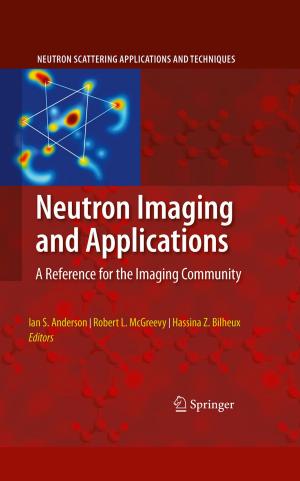Graves’ Disease
Pathogenesis and Treatment
Nonfiction, Health & Well Being, Medical, Medical Science, Immunology, Specialties, Internal Medicine, Endocrinology & Metabolism| Author: | ISBN: | 9781461544074 | |
| Publisher: | Springer US | Publication: | December 6, 2012 |
| Imprint: | Springer | Language: | English |
| Author: | |
| ISBN: | 9781461544074 |
| Publisher: | Springer US |
| Publication: | December 6, 2012 |
| Imprint: | Springer |
| Language: | English |
From the perspective of the investigator, Graves' disease is a fascinating disorder with unique features and opportunities for study. The discovery in 1956 that Graves' disease was caused by a humoral factor, later shown to be an antibody to the TSH receptor, was a triumph for modern investigative medicine. Rapid progress is now being made in (i) understanding the molecular interaction between autoantibodies and the TSH receptor, (ii) identifying the genes that contribute to the predisposition to disease, (iii) developing an animal model of Graves' disease, and (iv) identifying the long-sought orbital antigen in ophthalmopathy. From the clinical standpoint, although Graves' disease is eminently treatable, there is no definitive cure. None of the therapeutic options are ideal. It is hoped that rapid progress in understanding the pathogenesis of the disease will lead to the ultimate goal of some form of immunotherapy that will make antithyroid drugs, radioiodine and thyroidectomy obsolete.
The chapters in Graves' Disease: Pathogenesis and Treatment represent the viewpoints of many prominent clinicians and investigators working in the field. The editors are grateful for their contributions which cover an unusually comprehensive compendium of subjects relating to the disease.
From the perspective of the investigator, Graves' disease is a fascinating disorder with unique features and opportunities for study. The discovery in 1956 that Graves' disease was caused by a humoral factor, later shown to be an antibody to the TSH receptor, was a triumph for modern investigative medicine. Rapid progress is now being made in (i) understanding the molecular interaction between autoantibodies and the TSH receptor, (ii) identifying the genes that contribute to the predisposition to disease, (iii) developing an animal model of Graves' disease, and (iv) identifying the long-sought orbital antigen in ophthalmopathy. From the clinical standpoint, although Graves' disease is eminently treatable, there is no definitive cure. None of the therapeutic options are ideal. It is hoped that rapid progress in understanding the pathogenesis of the disease will lead to the ultimate goal of some form of immunotherapy that will make antithyroid drugs, radioiodine and thyroidectomy obsolete.
The chapters in Graves' Disease: Pathogenesis and Treatment represent the viewpoints of many prominent clinicians and investigators working in the field. The editors are grateful for their contributions which cover an unusually comprehensive compendium of subjects relating to the disease.















